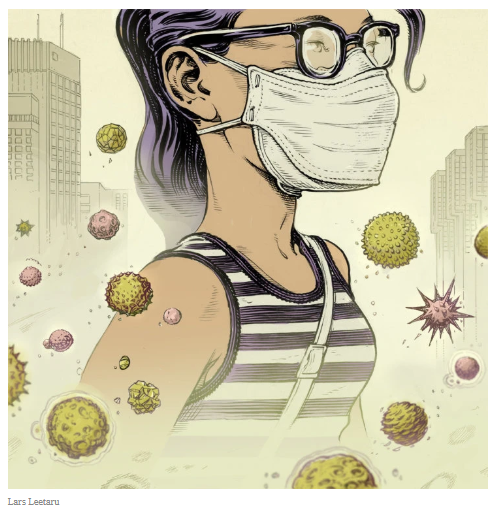
Growing public interest in facemask protection
IOM-In-The-News


IOM-In-The-News
Last year Dr Miranda Loh, a senior scientist at IOM, led a team that published a study in the BMJ (British Medical Journal,) on the ‘Effectiveness of face masks in Beijing’. The purpose of the study was to test the performance of a series of commonly bought facemasks available in China. The study found that most masks were able to filter our particles well, but when fitted to volunteers in a test chamber and ‘real-life’ tasks such as talking and walking were applied, some of the masks offered almost no protection. How the masks fitted to the face was a major factor in its reliability.
Public use and awareness of how to buy and fit facemasks are increasing because of studies such as Dr Loh’s. Media coverage of these type of studies help inform the public; the study offers quantitative evidence on the effectiveness of masks when being worn by people. This can help people select and mask manufacturers develop masks that are better suited for their faces. For example, the fit is a key factor in effectiveness; it should fit the face tightly eliminating any potential ‘leakage’ areas – this is where the mask may come away from the face when moving. Even a mask made from a very good filtering material may not actually reduce exposure to particles if it doesn’t fit properly.
Our study highlighted that masks are not the answer to our problems and will only go so far to offer protection. The consumer market is somewhat behind in comparison to workplace settings where protective masks have to meet rigours standards.
Air pollution is a growing global problem, not isolated to Asia; most large and developing cities are struggling with the strain of deadly particle exposure. As the evidence grows, media outlets are starting to play a role in informing the public to understand the risks air pollution poses to their health.
Until air pollution is reduced in cities then its recommend the public avoid busy roads, walk and cycle, if possible on less busy roads, rather than sit in a car. If you are travelling to a city look up the Air Quality Index, this will tell you how polluted the air is and what the health implications are.
Learn the facemask basics, buy a mask before you travel and make sure it fits tightly to the face.
Be aware that if you have existing health issues such as asthma or heart disease, then you will fall into a more vulnerable category and will be more susceptible to ongoing health issues from air pollution.